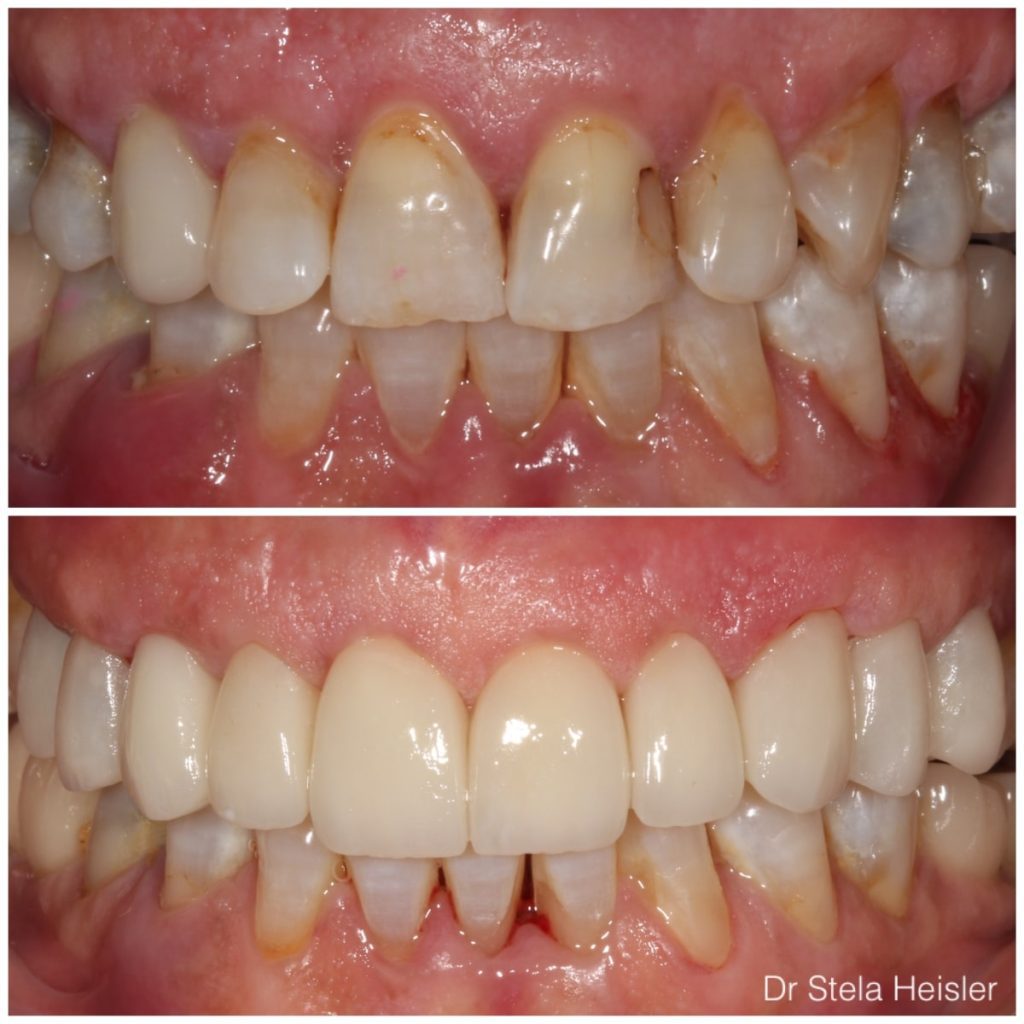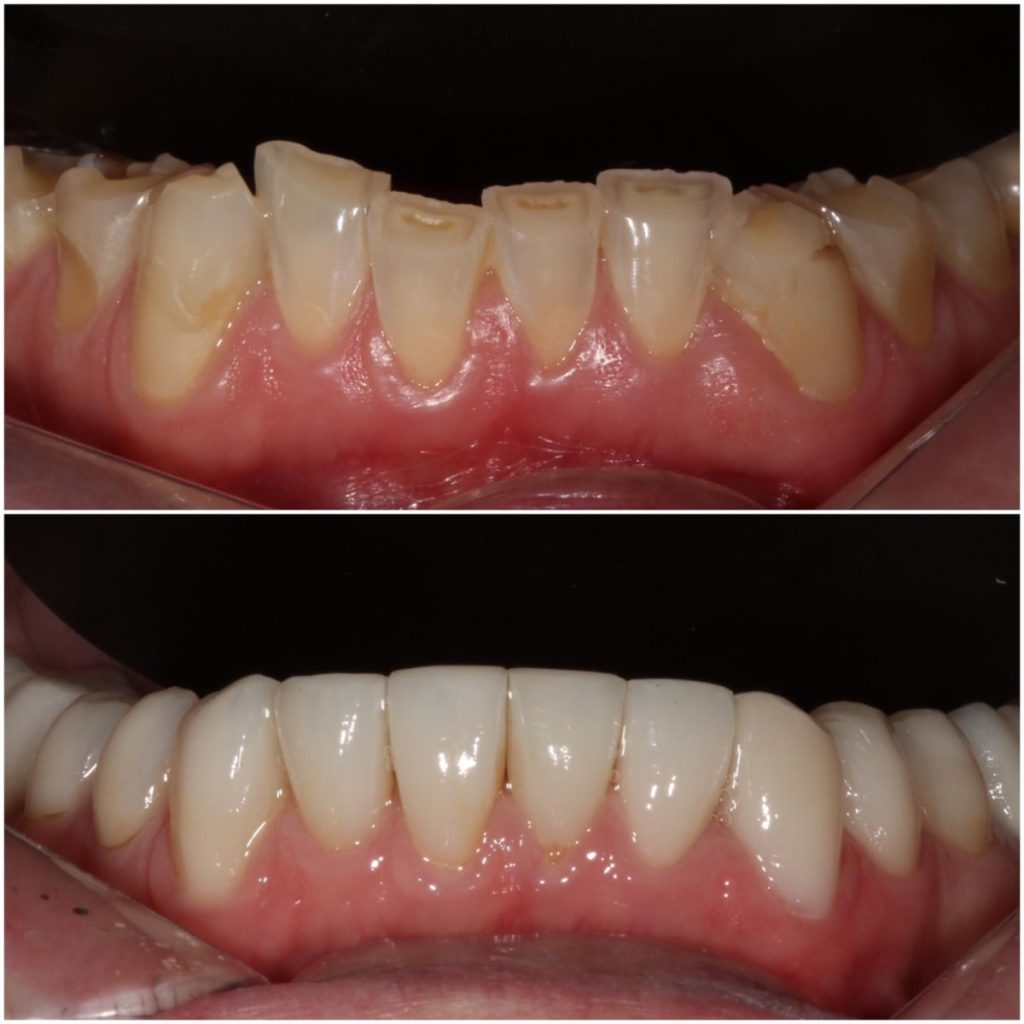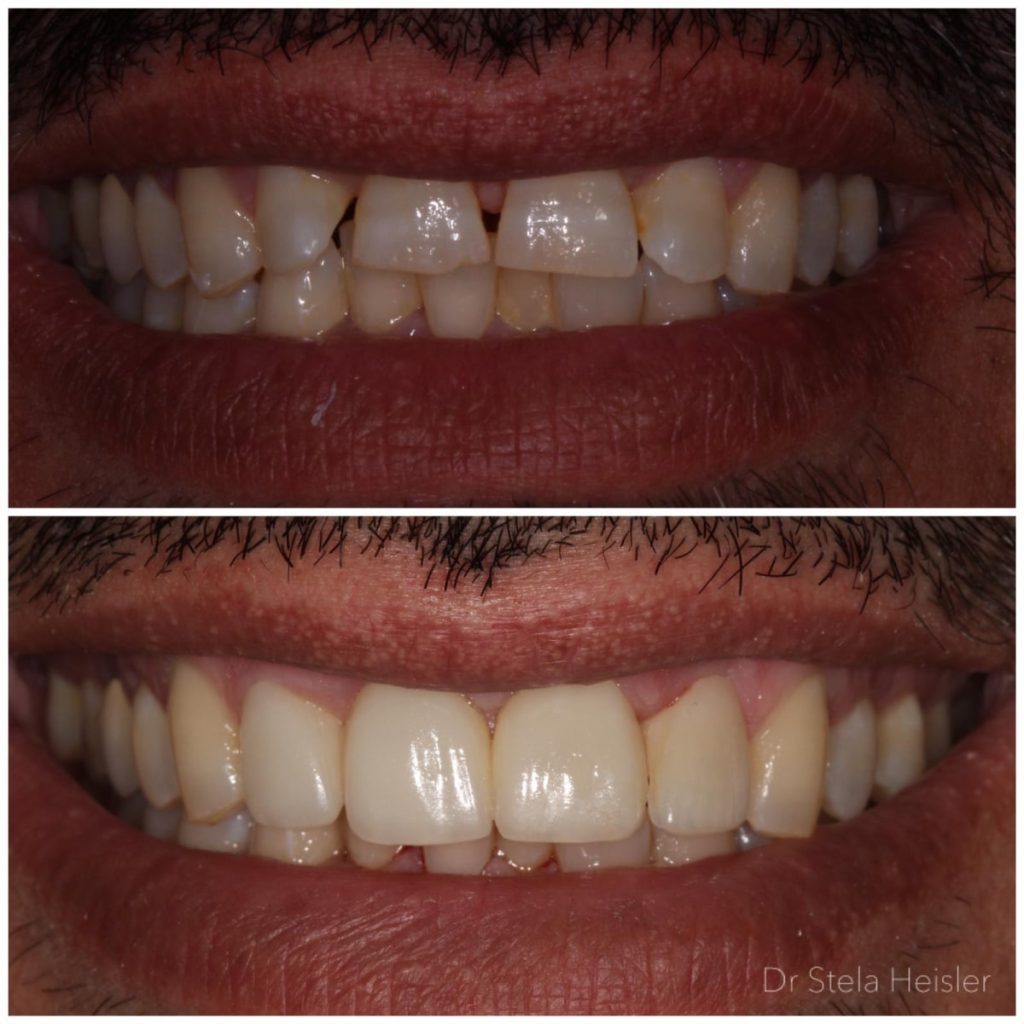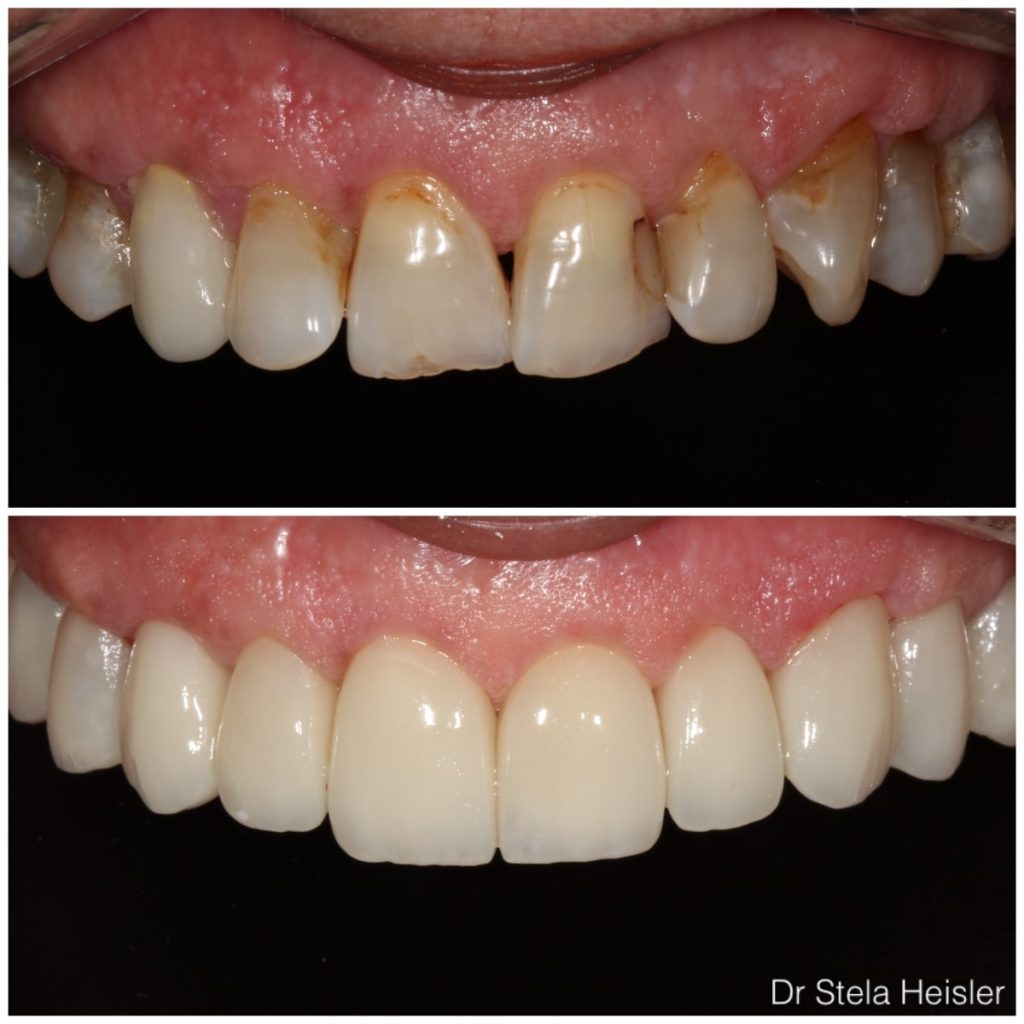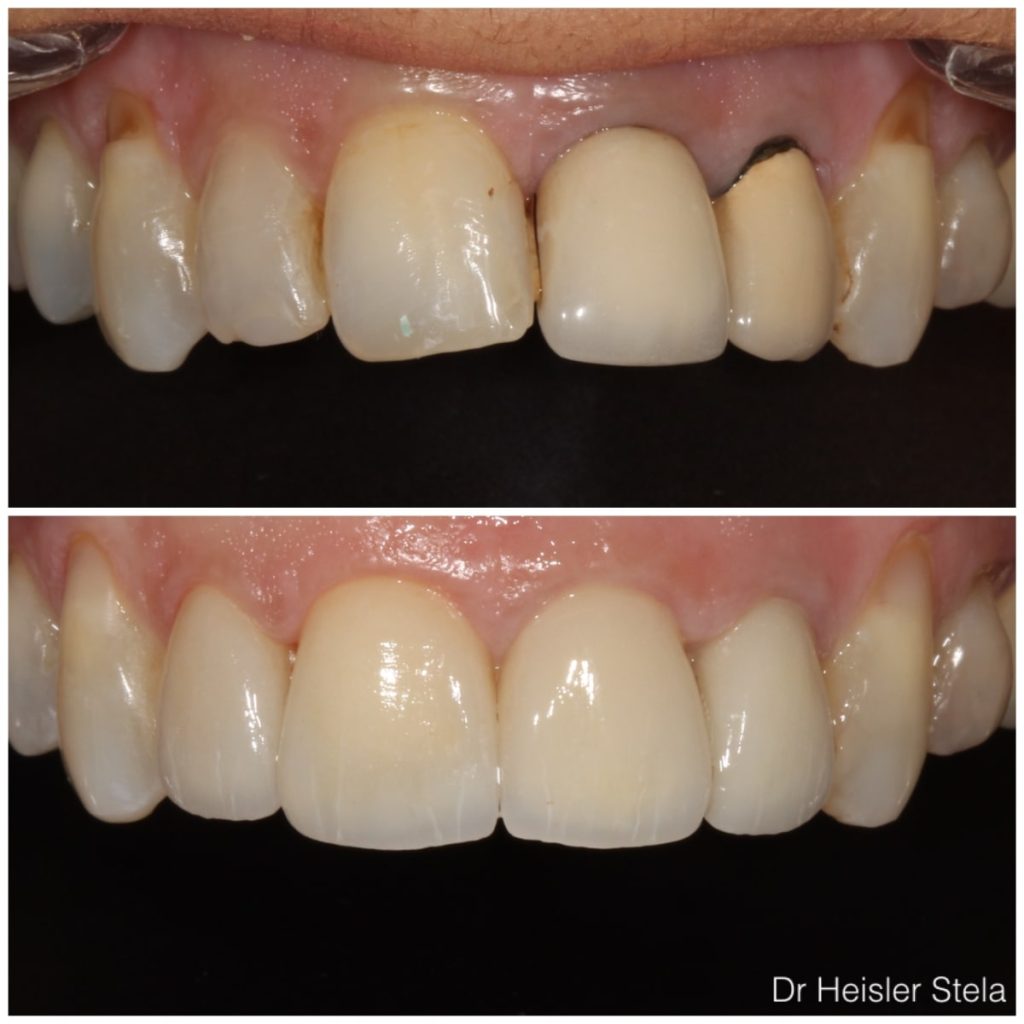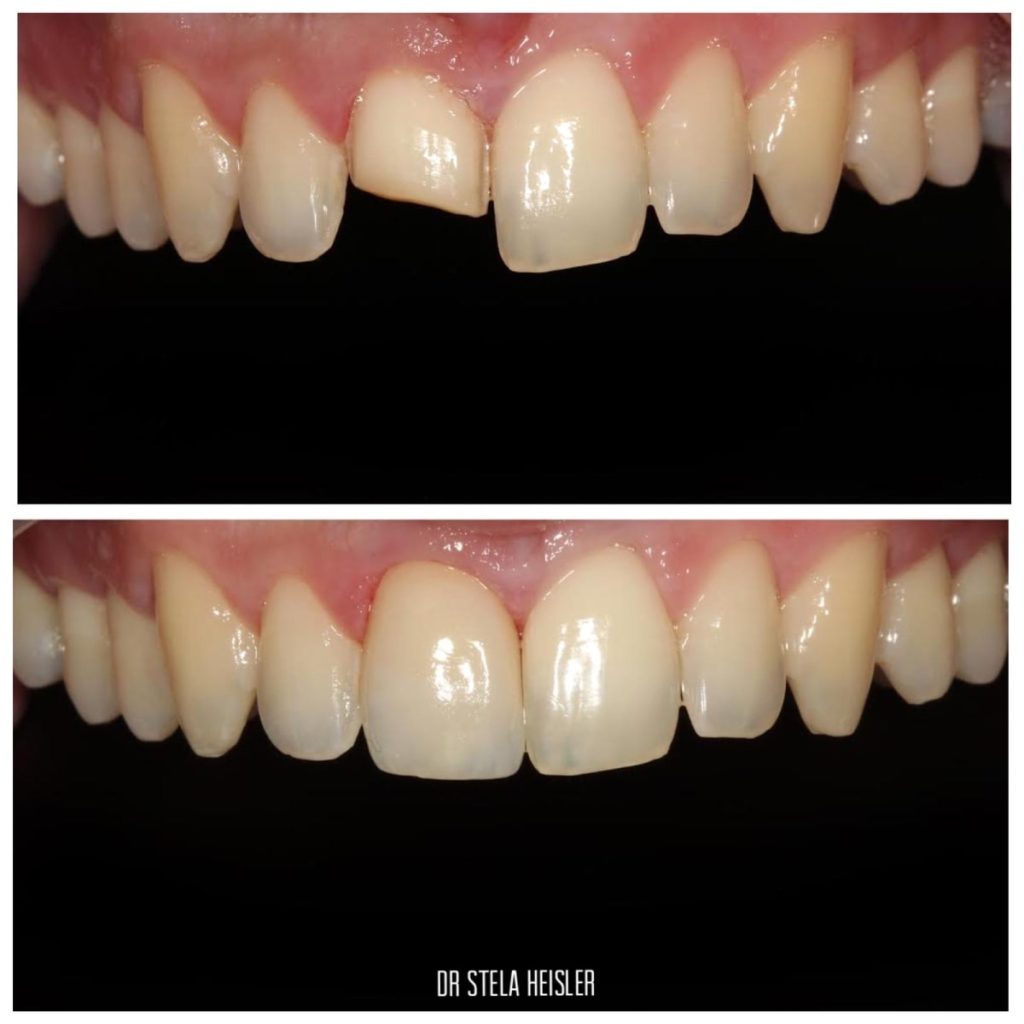Dental veneers are a popular cosmetic dental treatment that can enhance the appearance of your smile. Made from either porcelain or composite resin, these thin shells are bonded to the front of your teeth to improve their shape, size, and color. But are dental veneers right for everyone? Like any treatment, they come with both benefits and drawbacks. This article will delve into the pros and cons of dental veneers to provide a balanced perspective and help you make an informed decision.
Pros of Dental Veneers
- Aesthetics: One of the main advantages of dental veneers is the aesthetic improvement they provide. They offer a quick transformation, correcting various dental imperfections such as discoloration, gaps, minor misalignments, and chipped or broken teeth. They can be custom-made to match the color, shape, and size of your natural teeth, ensuring a realistic and attractive result.
- Durability: Dental veneers, especially those made from porcelain, are strong and long-lasting. With proper care and maintenance, they can last for up to 10 to 15 years. They are also resistant to stains, meaning your smile can remain bright for a longer period compared to natural teeth.
- Minimal Tooth Alteration: Unlike dental crowns, veneers require only a small amount of enamel to be removed from your teeth, preserving the majority of your natural tooth structure.
- Quick and Pain-Free Procedure: The veneer application process is typically quick and pain-free, usually requiring only two to three visits to the dentist.
Cons of Dental Veneers
- Irreversible Procedure: The process of fitting dental veneers involves the removal of a thin layer of tooth enamel, an irreversible procedure. Once you decide to have veneers, you’re committed to them for life as your teeth may not look the same without them.
- Potential Sensitivity: The removal of enamel might lead to increased sensitivity to hot and cold foods and drinks.
- Damage or Dislodgement: Veneers can be damaged or dislodged. While they are durable, they aren’t completely invincible. Biting down on hard foods or objects, or using your teeth to open packages, can cause them to chip, crack, or come loose.
- Cost: Dental veneers can be quite expensive, depending on the material, the specific procedure, and the number of veneers needed. While some dental insurance plans may cover a portion of the cost if the veneers are needed for structural reasons, cosmetic procedures are often not covered.
- Maintenance: Although veneers are stain-resistant, they require proper care and regular visits to the dentist to maintain their appearance and health. This means committing to good oral hygiene practices and regular dental check-ups.
Dental Veneers Pros and Cons – Conclusion
Dental veneers offer an effective solution for many people seeking to improve their smile. However, it’s essential to weigh the pros and cons carefully and discuss them with your dentist. Remember that each person is unique, and what works for one might not work for another. Your dentist can provide guidance based on your oral health, lifestyle, and personal preferences.
Ultimately, the decision to get dental veneers should be based on a combination of functional and aesthetic considerations. With a comprehensive understanding of the pros and cons, you’ll be better equipped to make a decision that suits your individual needs and circumstances.
Interested in dental veneers? Schedule a consultation with us today and let’s help you get the smile you’ve always wanted!

